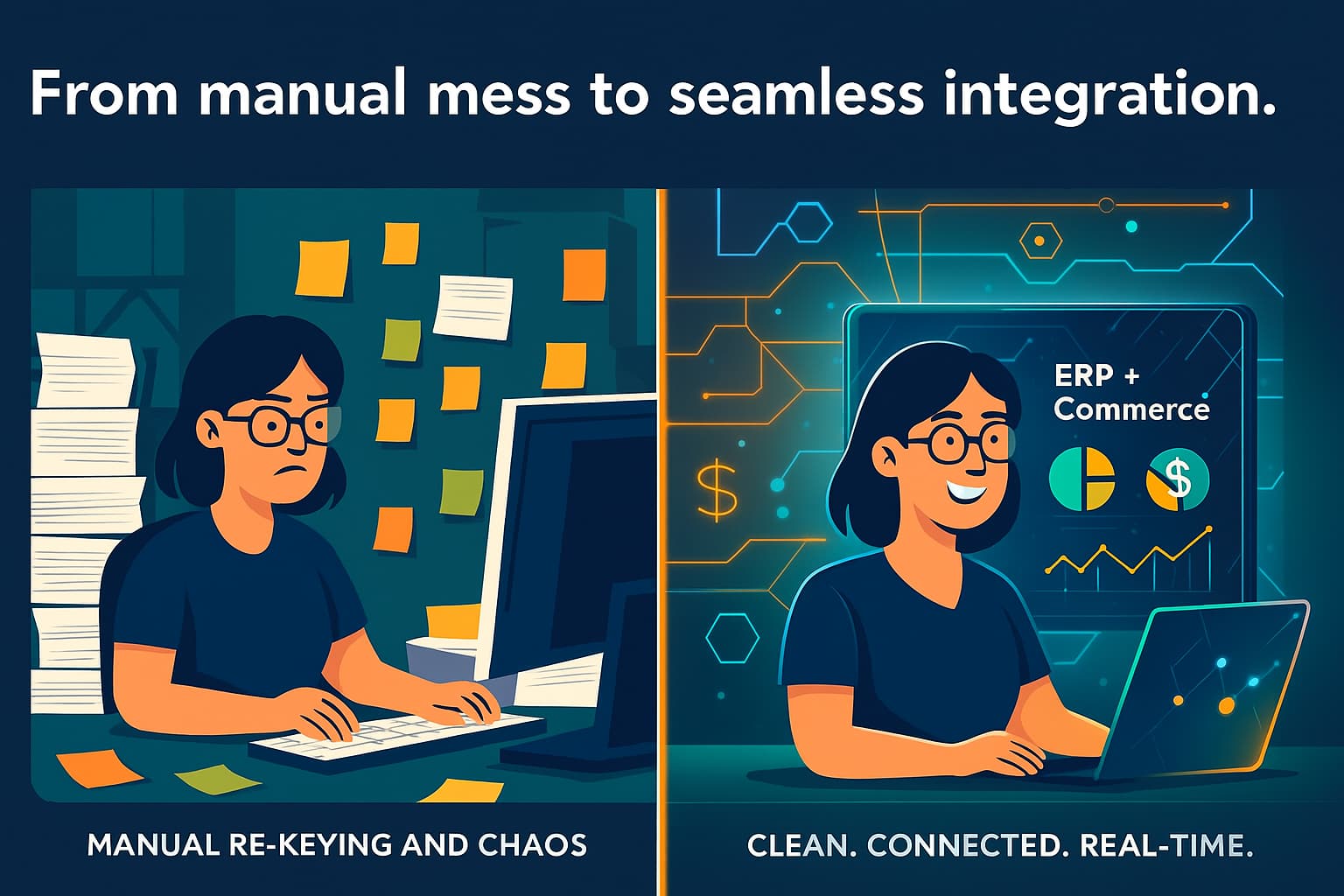
In the past, a clear distinction existed between B2B and B2C business models. Manufacturers sold to stores in bulk (B2B), and retailers sold to consumers in smaller quantities and marked the price up to make a profit (B2C). However, the initial dot-com wave changed market dynamics, and in the twenty years since the boom, the dynamics of ecommerce have changed exponentially.
.jpeg)
Online sales create the potential to distribute goods through resellers and completely change the commerce landscape when combined with shipping directly to buyers. Brands can experiment with how and where they distribute and what retail partnerships look like regardless of opening brick-and-mortar storefronts or exclusively using ecommerce.
What Does D2C Mean For Manufacturing?
You’ve probably heard about the D2C business model, or maybe you’re an expert. Either way, the D2C business model is being adopted by manufacturers more frequently. By selling direct to the consumer, manufacturers cut out the middleman and increase profits without selling in bulk at lower prices. It also provides new ways to offer customers modern experiences personalized to their preferences and behaviors.
Today we see manufacturers offer physical retail spaces and online branded ecommerce websites. Whether you use a mixed D2C (in-store and online sales) or solely ecommerce, determining which is best for your business depends on the direction and goals of your company.
Advantages Of Online D2C Sales
The first and most obvious advantage of moving to D2C sales is higher profit margins because no go-between buys your product at a discounted rate and marks up items to generate profits. When adopting a D2C sales model, you can sell goods closer to retail prices and realize the gains yourself instead of through a retailer.
However, beyond the profitability, adopting a D2C business model in many ways helps manufacturers boost online and in-person sales. Additionally, selling D2C increases the availability of marketplaces, and you can use an ecommerce website, social media channels, or other online sales platforms like Amazon or Walmart.
Let’s look at the top four benefits of adopting a D2C model as a manufacturer.
1. Increased Pricing Control
By eliminating the middleman, you set your own pricing and have more control of your brand image. This control leads to more market penetration and enables you to reach new customer segments in new geographical locations.
2. Customer Insights
You gain valuable insights into customer needs and preferences by directly interacting with customers. This data helps inform product development teams and target multiple customer segments with your marketing strategy.
3. Increased Agility
Selling directly to customers provides feedback on inefficient processes and bottlenecks in the purchasing process. This information enables you to respond quickly to market changes and customer needs.
4. Efficient Supply Chain
Adopting a D2C model allows manufacturers to handle logistics and distribution in-house, leading to lower costs and increased efficiency.
.jpeg)
Before You Get Started With D2C
As we can see, the benefits of adopting a D2C model are extensive but, there are plenty of considerations to assess before changing your business model. It requires careful research and planning to ensure it’s the correct strategy for your business.
Technology Investment
It’s no surprise that changing business models requires a significant investment in technical infrastructure. You’ll need an ecommerce solution for customers and software for sales teams. In addition, finding a data platform that supports the entire customer experience, tracks inventory, and provides a 360-degree view of your whole business operations is critical.
Potential Channel Conflict
Moving your sales online means you run the risk of competing with retailers and distributors that are already selling your products to consumers. Developing additional sales and marketing strategies help you gain visibility in established sales channels like brick-and-mortar stores and online marketplaces.
Meet Customer Expectations
Creating a great customer experience starts with an easy-to-use, elegant website with a well-designed buying process. You are also expected to deeply understand customer needs, provide high-quality products, and have fast delivery times. These expectations pressure you to offer great products and create exceptional experiences.
Are You Ready To Make The Switch?
Whether you’ve already switched to a D2C model or you’re still considering it, let Kensium help you realize your business goals. Our end-to-end ecommerce and Acumatica (ERP) implementation experts have helped many businesses convert from B2B and adopt the D2C business model. Our deep knowledge of commerce enables us to help you transform your business and increase operational efficiency and revenue. Contact us today and chat with a Customer Success team member to find out how we help!








.png)


















































-small.jpeg)







